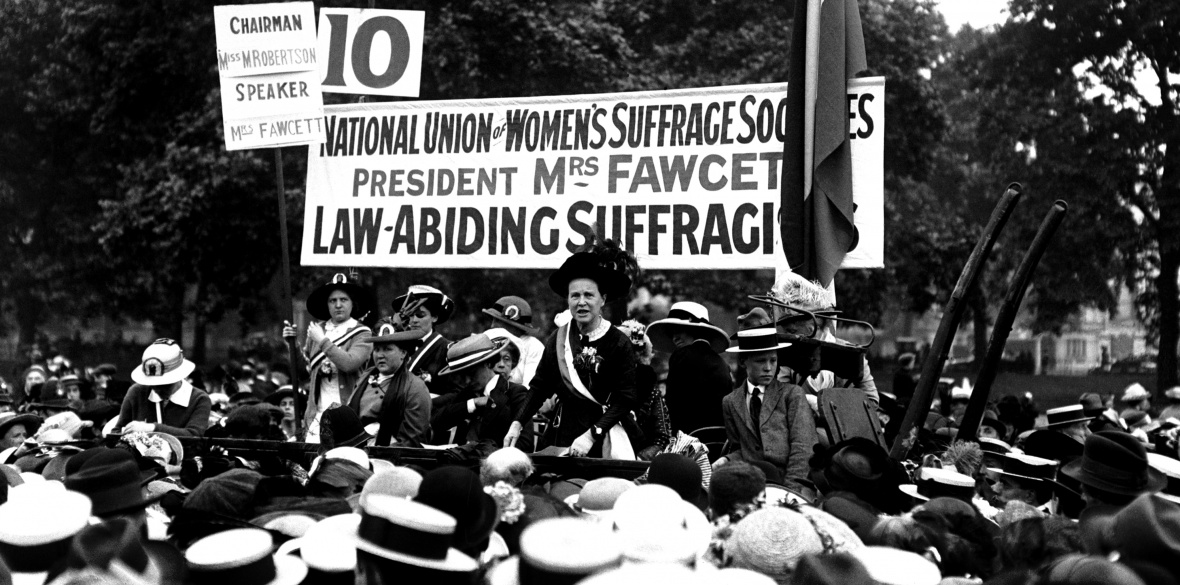This is the last article you can read this month
You can read more article this month
You can read more articles this month
Sorry your limit is up for this month
Reset on:
Please help support the Morning Star by subscribing here
IN MARCH I will begin teaching a 10 week course on radical women which begins with the women Levellers who challenged authority and tradition in the 1640s and ends with the suffragettes who also challenged authority and tradition before the first world war.
The aim of the course is to bring into the light the contribution made by women, both to general radical movements for social and political justice and to movements to advance the interests of women.
Socialist feminist historian Sheila Rowbotham once wrote a book called Hidden from History in which she highlighted how often women had been written out of radical history. Fifty years later this is still too often the case, with many women activists, and the movements they led, remaining in the shadows.
In contrast a small number of women such as Emmeline Pankhurst are written about too much, while the achievements of other women are ignored.
A case in point is Mary Quaile, who was very well known in her lifetime. She came to Manchester from Ireland with her family and as a young woman, inspired by the example of Margaret Bondfield, helped to form a cafe workers union. As a result, in 1911, she was appointed as assistant organiser of the Manchester and Salford Women's Trade Union Council, then later became as its organising secretary, a post she held until 1919.
In 1919, the MSWTUC became part of Manchester Trades Council and Mary became Secretary of the Women’s Group. She then became the national woman officer of the Dock, Wharf, Riverside and General Labourers’ Union, which later became part of the Transport and General Workers’ Union. Mary was also active at the Trades Union Congress and served on from 1923 to 1926. She led a women’s trade union delegation to the Soviet Union. Due to poor health, Mary resigned from all her national posts in 1933, but retained her trades council roles into the 1950s.
Mary died in 1958. There was an obituary of her next day in the Manchester Guardian which said that “her determination to get trade unionism for women accepted was often met with jeers, boos, rotten apples and threats of violence. She spoke at hundreds of factory gate meetings in both the East End of London and Manchester; she never betrayed any sign of fear when faced with hostility. Her warmth and lovable personality won for her many friends in the labour and trade union movement.”
In the years since her death Mary’s memory faded until it was revived by the formation of the Mary Quaile Club in 2014 who have organised numerous events on working-class history and the links with today, and have published a biography of Mary. The lesson is that we as a movement need to work to recover and popularise our own history.
I am delighted that the course will be able to make use of a room at the Working Class Movement Library in Salford, founded by CPGB members Ruth and Eddie Frow in their own home in the 1950s and, since 1987, housed in a building on The Crescent, funded by trade unions, individuals and Salford Council.
Ruth and Eddie believed passionately that the labour and working-class movement needed to remember its own history in order to understand society and plot a way forward in difficult times. Thus they dedicated their lives for forty years to collecting the many thousands of items which now comprise the collection and form a unique archive and library. There will an opportunity on the course to look at some of these resources.
In addition to the women Levellers the course will include Mary Wollstonecraft and other radical women of the 1790s, women Luddites, women at Peterloo, women Republicans, women atheists, women Chartists, women socialists and women trade unionists.
Finally, it will look at the campaign for women’s suffrage begun in June 1866 with a petition to parliament signed by 1,521 women. This led to the establishment of a National Society for Women’s Suffrage whose leading light for 20 years was Lydia Becker. The Society set up branches, organised meetings, published a journal — but failed to get a change in the law.
In Manchester in the 1890s Esther Roper, Sarah Dickenson and others took the campaign to working-class women, organising amongst mill workers and linking the vote to campaigns for higher wages and better working conditions.
A militant campaign for the vote was founded by the Pankhurst family in 1903 which led to confrontations with the police outside Parliament, the mass jailing of women, and the use of tactics such as window-smashing and arson. Partial success was achieved in 1918 and final success in 1928.
In my research for the course I am constantly amazed at the dogged determination of the women to bring about change in eras where the very notion of women speaking and campaigning publicly was a challenge to orthodoxy and convention.
The women of the Blackburn Female Reform Society said in July 1819 that they wanted to instil in their children “a deep rooted abhorrence of tyranny, come in what shape it may.” Two centuries later, the final defeat of tyranny is yet to be completed.
Michael has been researching and writing about women’s history for many years. His published work includes “Up Now Brave Women; Manchester’s Radical Women 1819-1918 and “for the sake of the women who to come after” : Manchester’s Radical Women 1914-1945.
His course starts on March 3 and costs £60. For more information please email Michael; [email protected]









